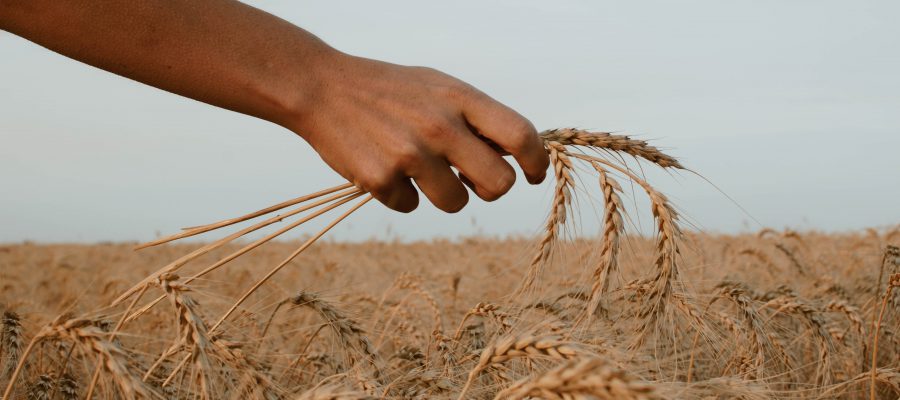Category
Articles
Articles covering the deep topics of the Bible and Christian lifestyle.
How to Love God with Your Money
Are you loving God with your money? How can you tell? One clear indicator from scripture is how you feel towards money. Do you love it? Are you afraid of it? Do you want more of it? Are you afraid of not having enough?
The primary issue of not using our money to love God deals with the heart—and it has real consequences. The Bible says the love of money pierces you with you sorrow.
The Omer in the Upper Room

The apostles self-isolated between Jesus’ ascension and Pentecost. You can steward your time in quarantine as they stewarded their time in the upper room.
“You can get so confused that you’ll start in to race
down long wiggled roads at a break-necking pace
and grind on for miles across weirdish wild space,
headed, I fear, toward a most useless place.
The Waiting Place…
…for people just waiting.
Waiting for a train to go
or a bus to come, or a plane to go
or the mail to come, or the rain to go
or the phone to ring, or the snow to snow
or the waiting around for a Yes or No
or waiting for their hair to grow.
Everyone is just waiting.
Waiting for the fish to bite
or waiting for the wind to fly a kite
or waiting around for Friday night
or waiting, perhaps, for their Uncle Jake
or a pot to boil, or a Better Break
or a string of pearls, or a pair of pants
or a wig with curls, or Another Chance.
Everyone is just waiting.” [3]
Do you recognize these words? They come from one of my three-year-old son’s favorite books: Oh, the Places You’ll Go! by Dr. Seuss. Even if the words are not familiar, perhaps the sentiment is.
In fact, maybe the sentiment is all too real at the moment. I don’t need to tell you that right now, it seems like the whole world is “the waiting place.” Waiting for a new vaccine and waiting to leave quarantine and to see our friends and to get un-slumped and to hear “All-clear!” from Donald Trump. Everyone is just waiting.
But in truth, “the waiting place” is not a “most useless place.” The Bible is filled with passages about intentional, purposeful, productive waiting. “Wait on the LORD; be of good courage, and He shall strengthen your heart…” (Psalm 27:14). “…But those who wait on the LORD, they shall inherit the earth” (Psalm 37:9). “But those who wait on the LORD shall renew their strength; they shall mount up with wings like eagles, they shall run and not be weary, they shall walk and not faint” (Isaiah 40:31).
From Death to Harvest

“Most assuredly, I say to you, unless a grain of wheat falls into the ground and dies, it remains alone; but if it dies, it produces much grain.”
When Jesus spoke these words in John 12:23-24, He was foretelling His own death. Even on the surface, His metaphor is rich with meaning: like a seed, He would be buried and produce a harvest of new life through His death. But His imagery goes far deeper than that. In fact, this quote hints at a divine mystery, a coded love-letter that God wrote to the Jewish people over 1,300 years before Jesus’ death so that they might more easily recognize their Messiah through two annual feasts: Early and Latter Firstfruits (AKA Pentecost). By examining these feasts and their contexts in the Jewish calendar, we can see that the first points to Jesus’ resurrection; that the second anticipates the outpouring of the Holy Spirit in Acts 2; and that both illuminate the loving brilliance of God’s plan to pursue and redeem people from every tongue, tribe, and nation.
“Be Anxious for Nothing”

This is a guest post from staff member Jonathan Nicholson. These guest posts are a part of a series of encouraging devotionals during this time of global disruption.
Everyone battles anxiety, but the Bible offers a clear strategy for victory. This article explores that strategy as it appears in Philippians 4:6-8.

“Where’s Paul?” I asked Luis. Luis hadn’t seen him. No one had since we’d returned from Barrio Nuevo, smeared with dirt and drenched in sweat, nearly an hour before. I had only been staying with Paul in the ministry center for about a week, but I already knew it wasn’t like him to just wander off. Luis began searching the village while I stayed home in case Paul turned up. Time passed. He didn’t. The sun began to set. Still no Paul.
It was July 17, 2012, a significant day for two reasons. First, it was the day we and a team of American high schoolers began construction on a small plot of dust and scrub on the outskirts of Barrio Nuevo. We spent the afternoon digging, carrying cement blocks, hauling wheel-less wheelbarrow loads of sand and cement, and setting up what would become an art piece in the center of a new park, a gift to the village.

Jesus is the Shelter in the Storm

This is a guest post from a long-time friend in our community, Jeremy Sundin. These guest posts are a part of a series of encouraging devotionals during this time of global disruption.
If you’re like most people in the world right now, you’re going through a time that tests your faith and tempts you to give into fear of the foreboding clouds on the horizon. And yet, hard times are not unique to our present times. Even the early Christians lived through incredibly tumultuous times. The Bible offers us a model of how to position our lives in times like these.
How to maximize your time with God

The times we spend with God are the most important moments of our lives. Reading the Word and praying are essential disciplines every Christian should attain to. It’s how we know God. Given the importance of this time—and how busy people’s schedule can be—we must seek to maximize our time with God.
Generally, whenever I want to spend time with God is when I am usually the most distracted. And tired. It almost never fails to happen: I sit in a comfy chair, open the Bible…and I’m out cold, like a Bible-reading narcolepsy.
But really, if the time we spend with God is the one of the primary ways to know God, why wouldn’t the enemy of our souls do all he can to distract, confuse, or disrupt this time of meeting? How can we practically fight to keep this time?
